Jingle Thief exploits cloud and Microsoft 365 systems to steal credentials and commit large-scale gift card fraud.


While the technology of nuclear batteries has been available since the 1950s, today’s drive to electrify and decarbonize increases the impetus to find emission-free power sources and reliable energy storage. As a result, innovations are bringing renewed focus to nuclear energy in batteries.
Nuclear batteries — those using the natural decay of radioactive material to create an electric current — have been used in space applications or remote operations such as arctic lighthouses, where changing a battery is difficult or even impossible. The Mars Science Laboratory rover, for example, uses radioisotopic power systems (RPS), which convert heat from radioactive decay into electricity via a thermoelectric generator. Betavolt’s innovation, 3, is a betavoltaic battery that uses beta particles rather than heat as its energy source. (Probably a repost from March 11 2024)
There are additional challenges that hinder the wider usage of these and all types of nuclear batteries, particularly material supply and discomfort with the use of radioactive materials. Yet, the physical and materials science behind this technology could unlock important advances for CO2-free energy and provide power for applications where currently available energy storage technologies are insufficient.
How do betavoltaic batteries work?
Betavoltaic batteries contain radioactive emitters and semiconductor absorbers. As the emitter material naturally decays, it releases beta particles, or high-speed electrons, which strike the absorber material in the battery, separating electrons from atomic nuclei in the semiconductor absorber. Separation of the resulting electron-hole pairs generates an electric current in the absorber, resulting in electrical power that can be delivered by the battery.
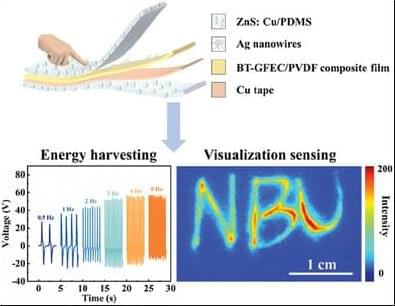
Flexible piezoelectric energy harvesters (FPEHs) have wide applications in mechanical energy harvesting, portable device driving, and piezoelectric sensors. However, the poor output performance of piezoelectric energy harvesters and the intrinsic shortcoming of piezoelectric sensors that can only detect dynamic pressure limit their further applications. BaTiO3 (BT) and PVDF are deposited on the glass fiber electronic cloth (GFEC) by impregnation and spin-coating methods, respectively, to form BT-GFEC/PVDF piezoelectric composite films. A mixed solution of mechanoluminescence (ML) particles ZnS: Cu and PDMS are used as the encapsulation layer to construct a high-performance ML-FPEH with self-powered electrical and optical dual-mode response characteristics. Due to the interconnection structure of the piezoelectric films, the prepared ML-FPEH illustrates a high effective energy harvesting performance (≈58 V, ≈43.56 µW cm−2). It can also effectively harvest mechanical energy from human activities. More importantly, ML-FPEH can sense stress distribution of hand-writing via ML to achieve stress visualization, making up for the shortcomings of piezoelectric sensors. This work provides a new strategy for endowing FPEH with dual-mode sensing and energy harvesting.
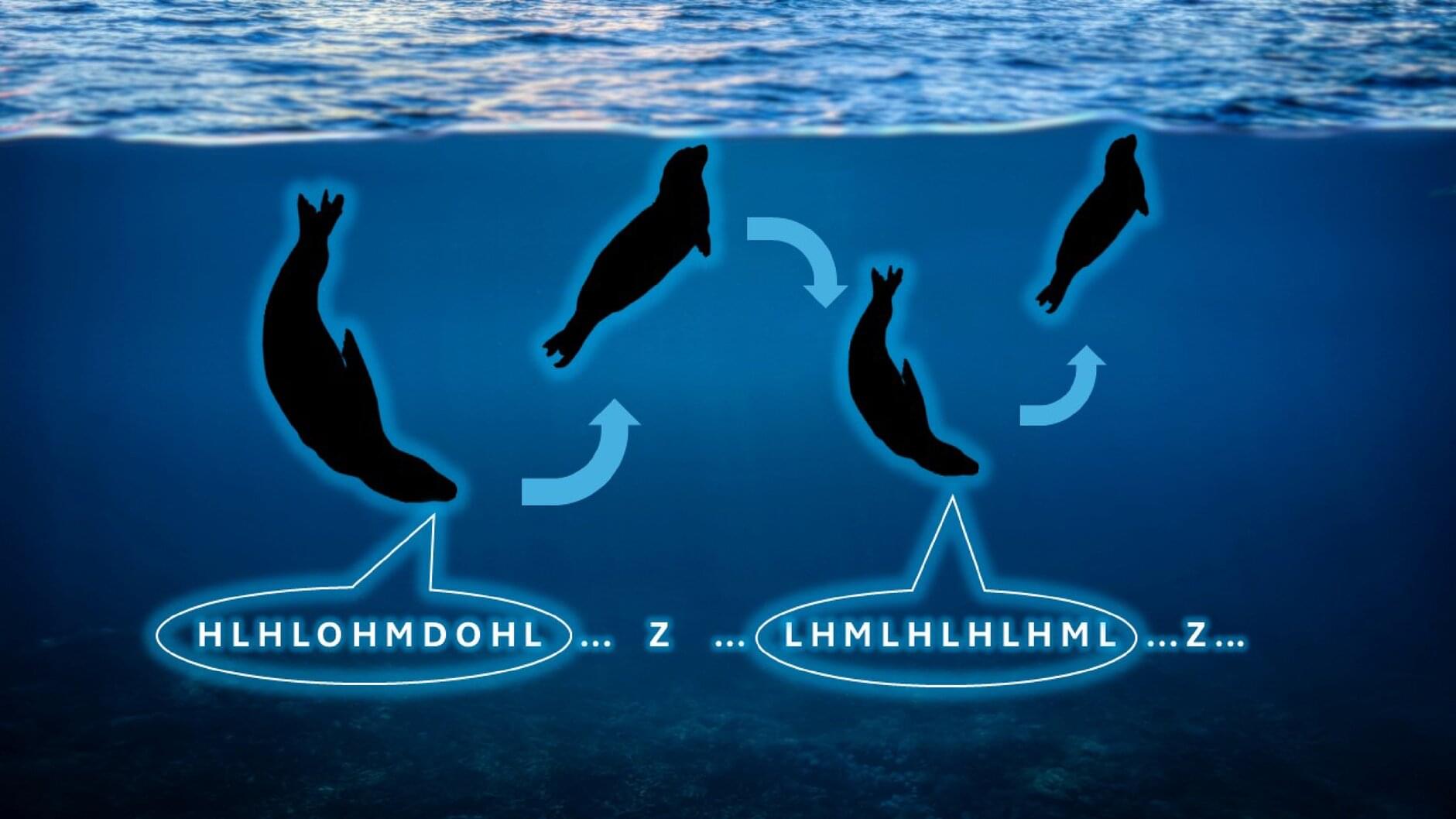
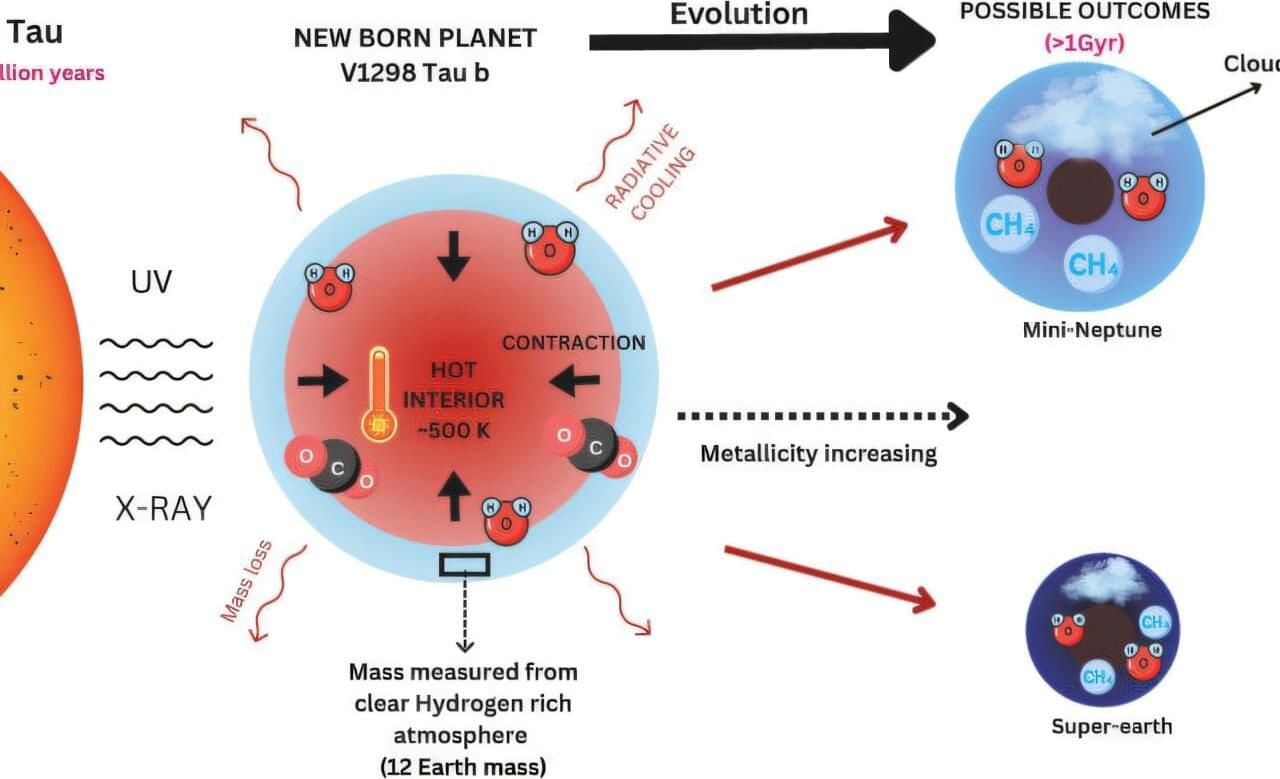
Astronomers have characterized the atmosphere of a young (20 Myr old) transiting exoplanet and found it to be unusually clear and puffy. By analyzing the planet’s atmospheric features, they were able to precisely measure the planet’s mass surpassing traditional dynamical techniques like radial velocity, which poorly perform with such active young stars. They found that V1298 Tau b is a proto-sub-Neptune, still hot and inflated from its recent formation.
The team, led by Saugata Barat (MIT, MA, US) and his Ph.D. supervisor Jean-Michel Désert (UvA, Netherlands) used the James Webb Space Telescope to study the very young planet, and their results are accepted for publication in the Astrophysical Journal and currently available on the preprint server arXiv.
V1298 Tau b is just 10 to 30 million years old and has an unusually clear and puffy atmosphere. The astronomers detected strong absorption signals from molecules like water vapor, methane, carbon dioxide, carbon monoxide, and even hints of complex photochemical processes, such as tentative detections of sulfur dioxide (SO₂) and carbonyl sulfide (OCS).
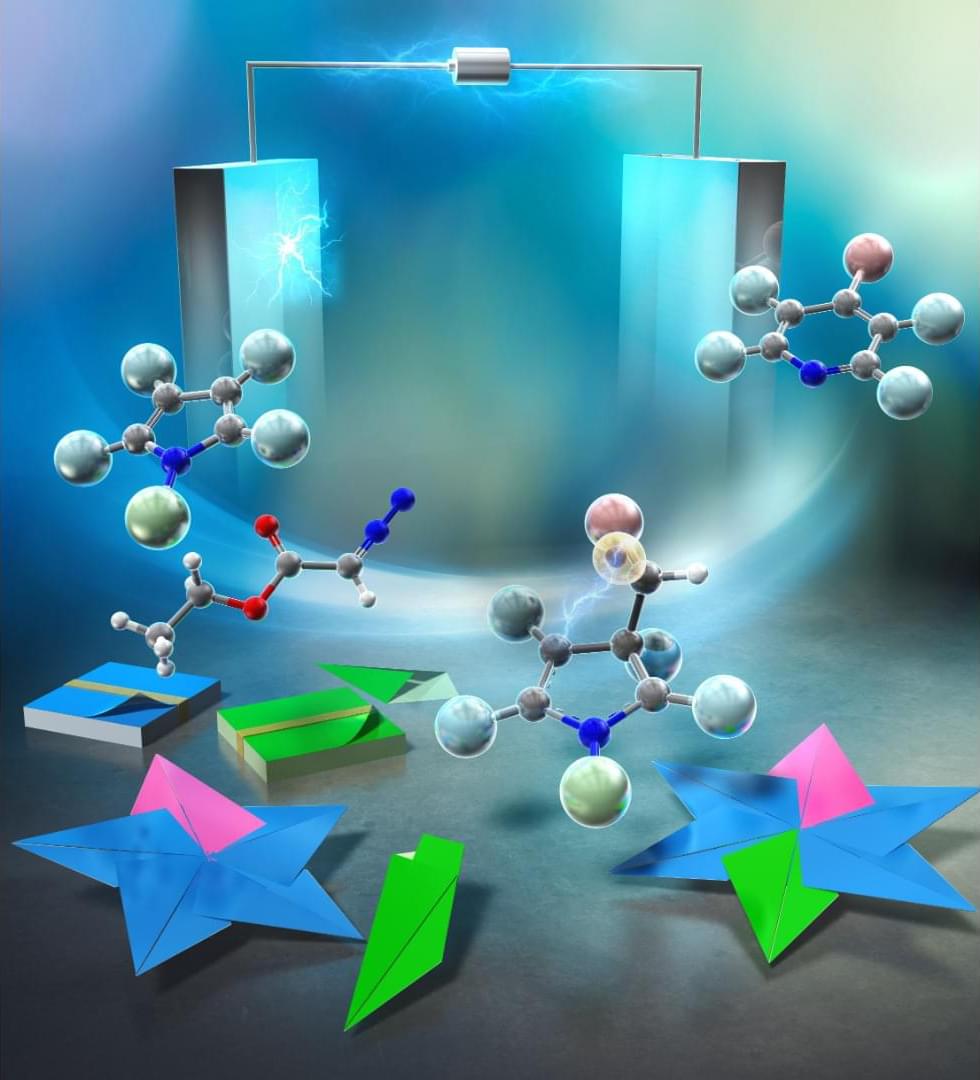
A research team has discovered an electrochemical method that allows highly selective para-position single-carbon insertion into polysubstituted pyrroles. Their approach has important applications in synthetic organic chemistry, especially in the field of pharmaceuticals.
Their work is published in the Journal of the American Chemical Society on July 14.
“We set out to address the longstanding challenge of achieving single-carbon insertion into aromatic rings with precise positional control,” said Mahito Atobe, Professor, Faculty of Engineering, YOKOHAMA National University. Transformations that modify aromatic rings are central to pharmaceutical and materials synthesis. However, inserting a single carbon atom into a specific position—especially the para-position—has remained extremely rare. Para position describes the location of substituents, those atoms that replace a hydrogen atom on a molecule. In the single carbon insertion approach, researchers add a single carbon atom into a molecule’s carbon framework. This lengthens a carbon chain or expands a ring by one carbon unit.
Method has organic chemistry applications, especially in pharmaceuticals.
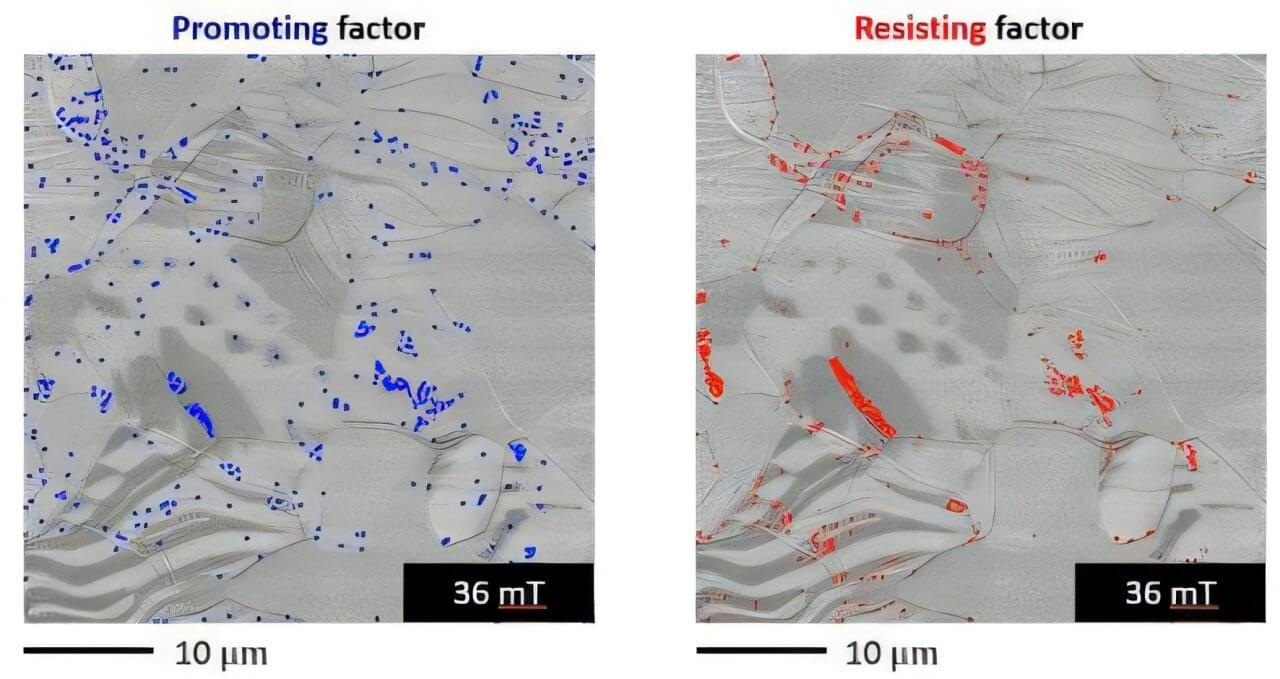
Magnetic hysteresis loss (iron loss) is an important magnetic property that determines the efficiency of electric motors and is therefore critical for electric vehicles. It occurs when the magnetic field within the motor core, made up of soft magnetic materials, is repeatedly reversed due to the changing flow of current in the windings. This reversal forces tiny magnetic regions called magnetic domains to repeatedly change their magnetization direction.
However, this change is not perfectly efficient and results in energy loss. In fact, iron loss accounts for approximately 30% of the total energy loss in motors, leading to the emission of carbon dioxide, which represents a pressing environmental concern.
Despite over half a century of research, the origin of iron loss in soft magnetic materials remains elusive. The energy spent during magnetization reversal in these materials depends on complex changes in magnetic domain structures. These have mainly been interpreted visually, and the underlying mechanisms have been discussed only qualitatively.

Photo-induced force microscopy began as a concept in the mind of Kumar Wickramasinghe when he was employed by IBM in the early years of the new millennium. After he came to the University of California, Irvine in 2006, the concept evolved into an invention that would revolutionize research by enabling scientists to study the fundamental characteristics of matter at nanoscale resolution.
Since the earliest experimental uses of PiFM around 2010, the device, which reveals the chemical composition and spatial organization of materials at the molecular level, has become a tool of choice for researchers in fields as diverse as biology, geology, materials science and even advanced electronics manufacturing.
“This is the story of a technology that was inspired by work at IBM, was invented and developed at UC Irvine, then got spun off, and now we have instruments on all continents across the world except for Antarctica,” says Wickramasinghe, Henry Samueli Endowed Chair and Distinguished Professor emeritus of electrical engineering and computer science who now holds the title of UC Irvine Distinguished Research Professor. “Almost anywhere serious research is happening, there are people out there who are using PiFM to discover new things.”

Rocket maker Firefly Aerospace filed for an initial public offering on Friday, with plans to trade under the ticker symbol “FLY” on the Nasdaq.
Firefly’s planned offering comes during a resurgence period for IPOs after the market collapsed in 2022 as rising interest rates and skyrocketing inflation deterred investors from betting on riskier assets.
Some companies, including Klarna and ticket reseller StubHub, delayed public offerings earlier this year as President Donald Trump’s tariff plans rattled global markets. But venture capitalists are becoming more optimistic after a strong June for deal activity that included a surge in crypto company Circle and a major Meta Platforms deal with Scale AI. Figma also filed its prospectus earlier this month.
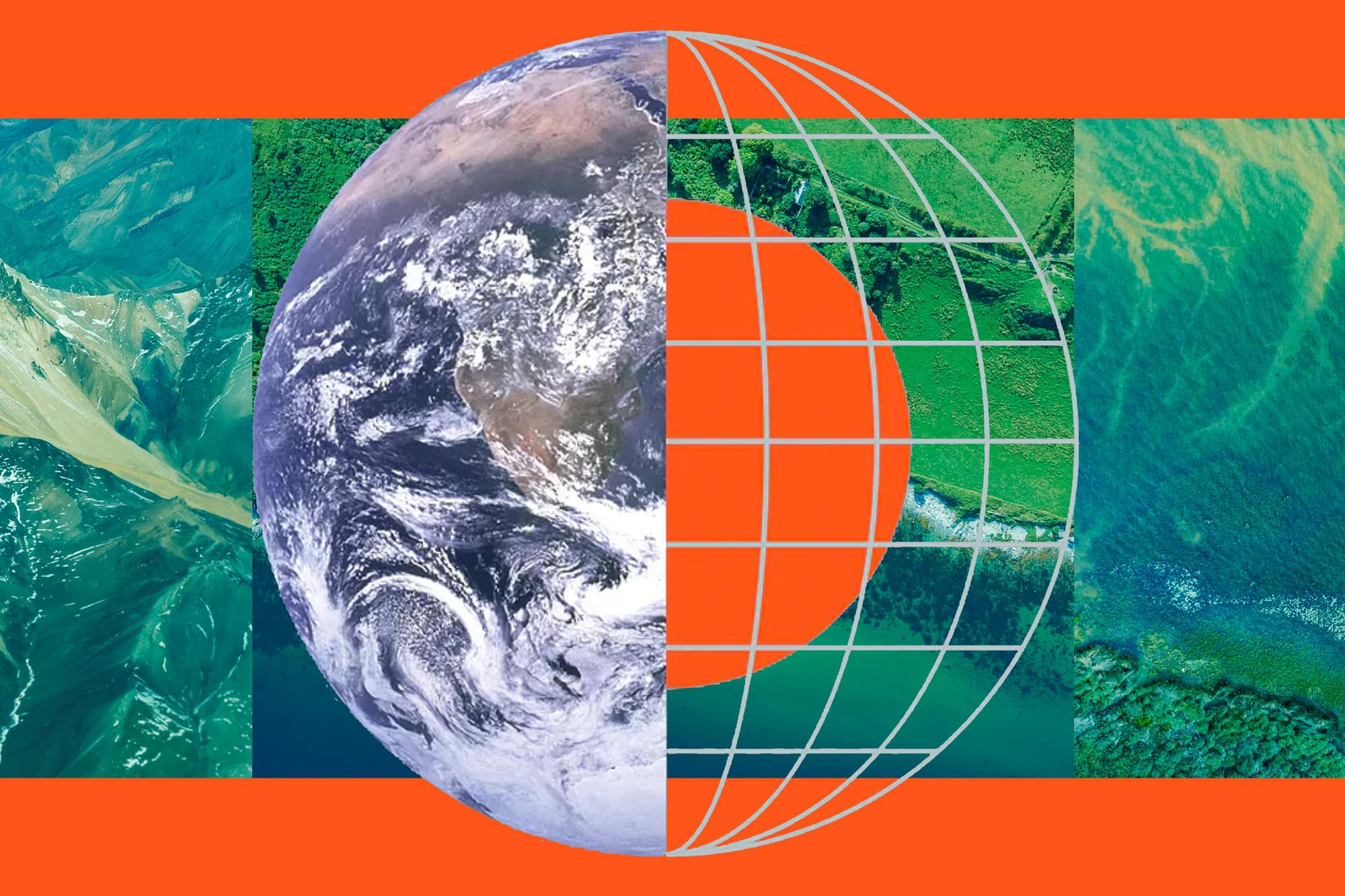
There’s an abandoned coal power plant in upstate New York that most people regard as a useless relic. But MIT’s Paul Woskov sees things differently.
Woskov, a research engineer in MIT’s Plasma Science and Fusion Center, notes the plant’s power turbine is still intact and the transmission lines still run to the grid. Using an approach he’s been working on for the last 14 years, he’s hoping it will be back online, completely carbon-free, within the decade.
In fact, Quaise Energy, the company commercializing Woskov’s work, believes if it can retrofit one power plant, the same process will work on virtually every coal and gas power plant in the world.
Quaise is hoping to accomplish those lofty goals by tapping into the energy source below our feet. The company plans to vaporize enough rock to create the world’s deepest holes and harvest geothermal energy at a scale that could satisfy human energy consumption for millions of years. They haven’t yet solved all the related engineering challenges, but Quaise’s founders have set an ambitious timeline to begin harvesting energy from a pilot well by 2026. (Circa June 28 2022/Posted first in Lifeboat jn, 2022 by Gemechu Taye & Genevieve Klein)
MIT spinout Quaise Energy is working to create geothermal wells made from the world’s deepest holes in order to repurpose coal and gas plants.